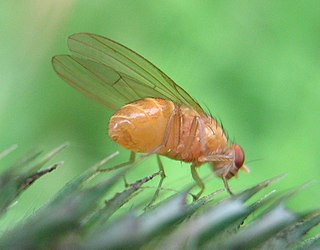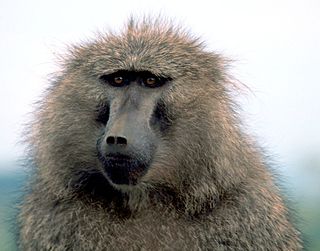
Anthropology is the scientific study of humanity, concerned with human behavior, human biology, cultures, societies, and linguistics, in both the present and past, including past human species. Social anthropology studies patterns of behavior, while cultural anthropology studies cultural meaning, including norms and values. A portmanteau term sociocultural anthropology is commonly used today. Linguistic anthropology studies how language influences social life. Biological or physical anthropology studies the biological development of humans.

Biology – The natural science that studies life. Areas of focus include structure, function, growth, origin, evolution, distribution, and taxonomy.

Biological anthropology, also known as physical anthropology, is a scientific discipline concerned with the biological and behavioral aspects of human beings, their extinct hominin ancestors, and related non-human primates, particularly from an evolutionary perspective. This subfield of anthropology systematically studies human beings from a biological perspective.
Sociobiology is a field of biology that aims to examine and explain social behavior in terms of evolution. It draws from disciplines including psychology, ethology, anthropology, evolution, zoology, archaeology, and population genetics. Within the study of human societies, sociobiology is closely allied to evolutionary anthropology, human behavioral ecology, evolutionary psychology, and sociology.

Primatology is the scientific study of primates. It is a diverse discipline at the boundary between mammalogy and anthropology, and researchers can be found in academic departments of anatomy, anthropology, biology, medicine, psychology, veterinary sciences and zoology, as well as in animal sanctuaries, biomedical research facilities, museums and zoos. Primatologists study both living and extinct primates in their natural habitats and in laboratories by conducting field studies and experiments in order to understand aspects of their evolution and behavior.
Irven DeVore was an anthropologist and evolutionary biologist, and Curator of Primatology at Harvard University's Peabody Museum of Archaeology and Ethnology. He headed Harvard's Department of Anthropology from 1987 to 1992. He taught generations of students at Harvard both at the undergraduate and graduate levels. He mentored many young scientists who went on to prominence in anthropology and behavioral biology, including Richard Lee, Robert Trivers, Sarah Hrdy, Peter Ellison, Barbara Smuts, Henry Harpending, Marjorie Shostak, Robert Bailey, Leda Cosmides, John Tooby, Richard Wrangham and Terrence Deacon.

Richard Walter Wrangham is an English anthropologist and primatologist; he is Professor of Biological Anthropology at Harvard University. His research and writing have involved ape behavior, human evolution, violence, and cooking.
Human behavioral ecology (HBE) or human evolutionary ecology applies the principles of evolutionary theory and optimization to the study of human behavioral and cultural diversity. HBE examines the adaptive design of traits, behaviors, and life histories of humans in an ecological context. One aim of modern human behavioral ecology is to determine how ecological and social factors influence and shape behavioral flexibility within and between human populations. Among other things, HBE attempts to explain variation in human behavior as adaptive solutions to the competing life-history demands of growth, development, reproduction, parental care, and mate acquisition. HBE overlaps with evolutionary psychology, human or cultural ecology, and decision theory. It is most prominent in disciplines such as anthropology and psychology where human evolution is considered relevant for a holistic understanding of human behavior.
Dual inheritance theory (DIT), also known as gene–culture coevolution or biocultural evolution, was developed in the 1960s through early 1980s to explain how human behavior is a product of two different and interacting evolutionary processes: genetic evolution and cultural evolution. Genes and culture continually interact in a feedback loop: changes in genes can lead to changes in culture which can then influence genetic selection, and vice versa. One of the theory's central claims is that culture evolves partly through a Darwinian selection process, which dual inheritance theorists often describe by analogy to genetic evolution.
Cultural selection theory is the study of cultural change modelled on theories of evolutionary biology. Cultural selection theory has so far never been a separate discipline. However it has been proposed that human culture exhibits key Darwinian evolutionary properties, and "the structure of a science of cultural evolution should share fundamental features with the structure of the science of biological evolution". In addition to Darwin's work the term historically covers a diverse range of theories from both the sciences and the humanities including those of Lamark, politics and economics e.g. Bagehot, anthropology e.g. Edward B. Tylor, literature e.g. Ferdinand Brunetière, evolutionary ethics e.g. Leslie Stephen, sociology e.g. Albert Keller, anthropology e.g. Bronislaw Malinowski, Biosciences e.g. Alex Mesoudi, geography e.g. Richard Ormrod, sociobiology and biodiversity e.g. E.O. Wilson, computer programming e.g. Richard Brodie, and other fields e.g. Neoevolutionism, and Evolutionary archaeology.
The following outline is provided as an overview of and topical guide to anthropology:
Frances J. White is a British biological anthropologist, professor, and primatologist at the University of Oregon. As a behavioral ecologist, her research focuses on the evolution of primate sociality and social systems. She has studied the socioecology of the bonobo chimpanzee for over 35 years at Lomako Forest in the Democratic Republic of Congo. She is the foremost American authority on this species in the wild and has done extensive field research on the bonobo or pygmy chimpanzees. Her bonobo research examines why bonobos have evolved a very different social system compared to the closely related chimpanzee.
The following outline is provided as an overview of and topical guide to social science:
In biology, paternal care is parental investment provided by a male to his own offspring. It is a complex social behaviour in vertebrates associated with animal mating systems, life history traits, and ecology. Paternal care may be provided in concert with the mother or, more rarely, by the male alone.

Social Bonding and Nurture Kinship: Compatibility between Cultural and Biological Approaches is a book on human kinship and social behavior by Maximilian Holland, published in 2012. The work synthesizes the perspectives of evolutionary biology, psychology and sociocultural anthropology towards understanding human social bonding and cooperative behavior. It presents a theoretical treatment that many consider to have resolved longstanding questions about the proper place of genetic connections in human kinship and social relations, and a synthesis that "should inspire more nuanced ventures in applying Darwinian approaches to sociocultural anthropology". The book has been called "A landmark in the field of evolutionary biology" which "gets to the heart of the matter concerning the contentious relationship between kinship categories, genetic relatedness and the prediction of behavior", "places genetic determinism in the correct perspective" and serves as "a shining example of what can be achieved when excellent scholars engage fully across disciplinary boundaries."
Leslie Crum Aiello is an American paleoanthropologist and professor emeritus of University College London. She was the president of Axel Lennart Wenner-Gren donated Wenner-Gren Foundation for Anthropological Research from 2005 to 2017. In 2014, Aiello was elected to the American Philosophical Society. She is currently president of the American Association of Physical Anthropologists.

The following outline is provided as an overview of and topical guide to evolution:
Evolutionary psychology has traditionally focused on individual-level behaviors, determined by species-typical psychological adaptations. Considerable work, though, has been done on how these adaptations shape and, ultimately govern, culture. Tooby and Cosmides (1989) argued that the mind consists of many domain-specific psychological adaptations, some of which may constrain what cultural material is learned or taught. As opposed to a domain-general cultural acquisition program, where an individual passively receives culturally-transmitted material from the group, Tooby and Cosmides (1989), among others, argue that: "the psyche evolved to generate adaptive rather than repetitive behavior, and hence critically analyzes the behavior of those surrounding it in highly structured and patterned ways, to be used as a rich source of information out of which to construct a 'private culture' or individually tailored adaptive system; in consequence, this system may or may not mirror the behavior of others in any given respect.".
There are two main approaches currently used to analyze archaeological remains from an evolutionary perspective: evolutionary archaeology and behavioral ecology. The former assumes that cultural change observed in the archaeological record can be best explained by the direct action of natural selection and other Darwinian processes on heritable variation in artifacts and behavior. The latter assumes that cultural and behavioral change results from phenotypic adaptations to varying social and ecological environments.







